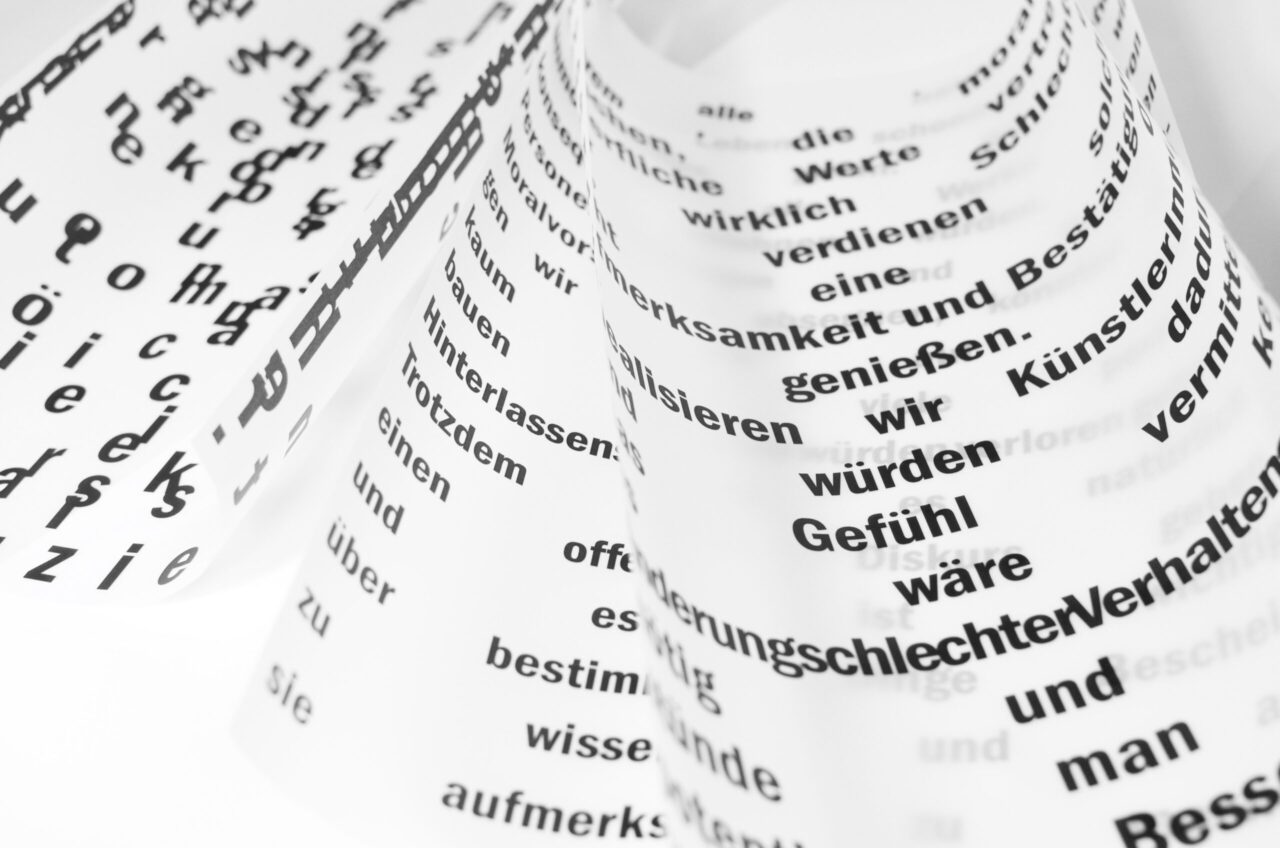The German language is considered by many people to be aggressive and harsh, however, in reality, it is a very beautiful language for those who hear it.
The beauty of the German language lies in the ability to create new words in a logical way, and its ability to subtly change the structure of sentences to place emphasis on different words. All languages sound odd and unnatural to non-speakers, and German is no exception, however, one may find German to be quite musical once the odd sounds are able to be heard as words.
Of course, beauty is in the eye, or ear, of the beholder, and over time German can reveal its beauty to those who speak it. While you may still be learning, or thinking about learning German, I have compiled some reasons that will help you see that it is beautiful after all – even if you cannot speak it.

German Onomatopoeias Make Words Poetic
Onomatopoeias are words that sound like the thing they are describing. These are usually words used to describe sounds animals make, such as moo, oink and meow. The English language also has other onomatopoeias like whisper, boom, shuffle, and whip. This concept is also present in the German language, despite the harsh sounds a non-German speaker may hear.
Here are just some German onomatopoeias in German:
- Mampfen (to bite/chomp)
- Pupsen (to fart)
- Schlucken (to swallow)
- Schnarchen (to snore)
- Summen (to buzz)
In addition to sounding like the thing they are describing, these words also have a poetic rhythm to the way they are said. It means that although you may feel that the words you are hearing sound harsh and angry, they may just be talking about how much someone snores! If you have a listen to individual words, you’ll be sure to pick out some onomatopoeias inside conversation as well.
These words can mesh with the flow of the language and bring out an almost musical element – you’ll be able to read more about this below.

German Conversations Can Sound Melodic
All languages have their own individual flows and rhythms to them. Part of this is the way that words sound in different languages or the number of words needed to say something. Languages place emphasis on different words and this results in a different flow in conversations.
If you were to sit and listen to couples speaking to each other in a café, or perhaps at a shop, you’ll begin to notice that German can be quite a melodic language. The sentences seem to flow together in almost a musical tone which is quite the opposite of the harsh, aggressive sounding German that is often stereotyped. This becomes more and more apparent as you learn more and more of the language.
If you have a conversation with a German for longer than about 20 seconds, you’ll even notice that German speakers often use noises as part of conversations in everyday life, much more so than the average English speaker. Often this is to emphasize what is being said or to give sound effects when using gestures in conversation. Once you notice it, you’ll come to appreciate this as a definite positive and beauty in the German language.

The Logicalness Of German Words
German learners who speak English as their mother tongue quickly begin to appreciate the way in which German makes bigger words by simply putting two smaller words together. English does this in small ways with words such as “rain” + “forest” to create “rainforest”. German takes this to new levels, such as the below words.
| Word 1 | Word 2 | Compound word |
| Hand (hand) | Schuhe (shoe) | Handschuhe (glove) |
| Ohr (ear) | Wurm (worm) | Earworm (song stuck in your head) |
| Regen (rain) | Schirm (shield) | Regenschirm (umbrella) |
| Staub (dust) | Sauger (sucker) | Staubsauger (vaccum) |
| Wasser (water) | Kocher (cooker) | Wasserkocher (kettle) |
Language is a living thing, and part of the beauty of this is that new words are able to be created. Even better, if you do this in German, you’d be surprised how often you will use the correct word.
If you’re ever lost for a word in German, you’ll be surprised how often you will be correct by just adding the two most associated words together.
This not only makes German a beautiful language for its simplicity and logicalness, but it also means that you’ll be able to learn words quicker once you have learned this aspect of the German language.
This logic goes a step further in written German.
Aside from a few pronunciation rules, and some words with dots over them (called umlauts), the German language is a largely phonetic language. This means that you will need to pronounce every letter that you see, making it easier to pronounce than French words and on the same level as Spanish words.
Compound Words
Once you can see the way that compound German words are put together, you can pronounce any German word no matter how big.
This means you’ll be able to see that words that look intimidating, like Schifffahrt (Schiff-fahrt [shipping]) or Backpfeifengesicht (Back-pfeifen-gesicht [the face you’d like to slap]), will suddenly become clear. This is the difference between night and day in reading the German language and is a game-changer in seeing the beauty in the language.

German Accents
Of course, some German accents will sound better than others to you, in the same way, that some English accents sound better than others to you. There are different types of German, such as High German and Low German and of course the German that you are likely to hear in the German Parliament rather than in a pub on a late Friday. You can read more about different German here.
There are different accents across Germany, some of which may seem more or less beautiful to the listener.
If you start in the north of Germany and work your way south, you will notice a variety of different accents and dialects of the German language.
A great example of this is the various regional differences in the word “ich” which is the German word for “I” and obviously often used. If you were to visit Berlin, for example, this word would be pronounced like “ick” and would sound harsh and aggressive to some listeners. Moving further south, the harshness becomes softer, eventually resulting in it being pronounced “isch” in a softer sound.
As you may expect, although there is variance in accents, written German is consistent across all of Germany. This is the same in English, despite the huge difference in pronunciation across the country.

German Stereotypes
The German language has many stereotypes. When thinking of the German language, the mind may quickly turn to the music of Rammstein or the videos comparing words such as butterfly (Schmetterling) or plane (Flugzeug).
This can lead the stereotyped beliefs on the German language and lead listeners to miss the parts of the German language that makes it beautiful.
Next time you’re listening to some German speakers, take a second to see if the language truly seems beautiful to you!
- The Ultimate German Pronunciation Guide

- Why German Literature is Essential for Language Learning

- Peculiar Facts About The German Language You May Not Know

- Why Are German Students So Good At Languages (Explained)

- Is The German Language Dying?

- How Easy Is It To Live In Germany Without Knowing German?

- 5 Great Reasons Why The German Langauge May Be Great For You To Learn

- 5 Interesting Aspects Of The German Language You Should Know

- Is German A More Efficient Language Than English? (Answered)










